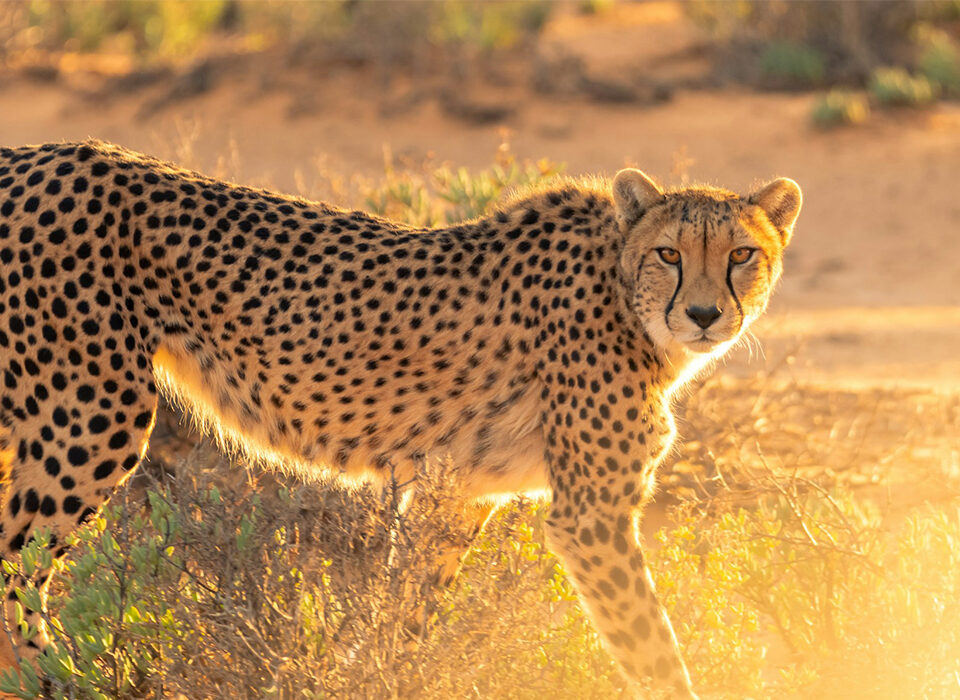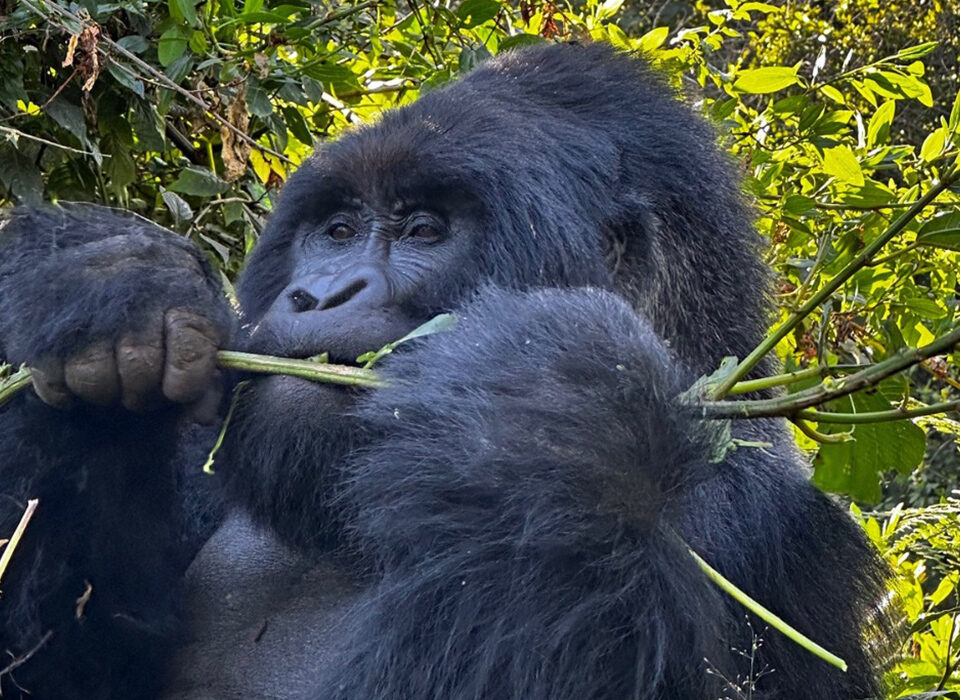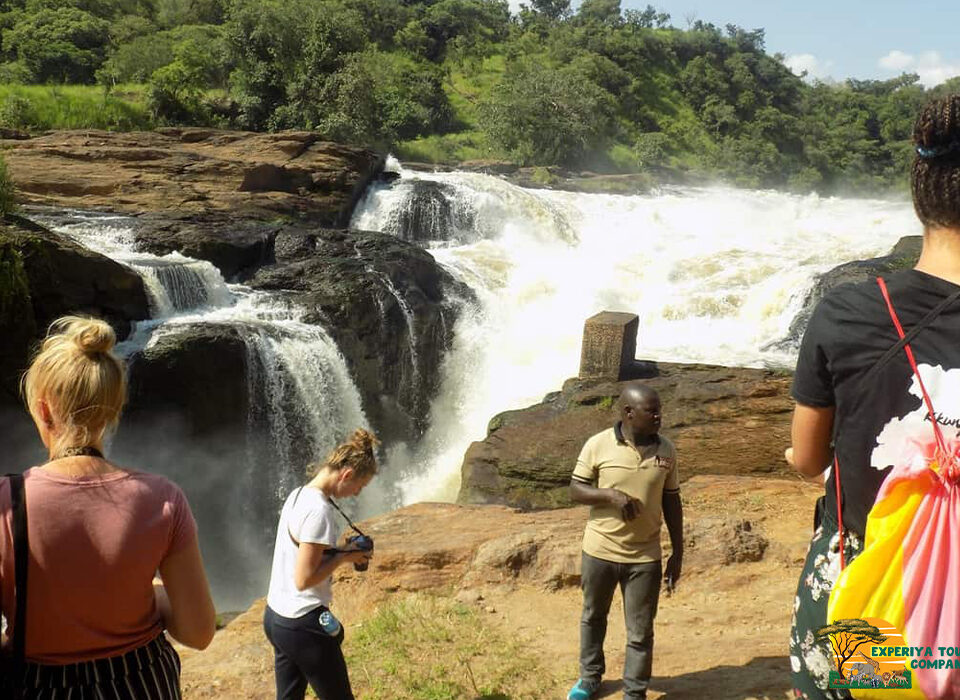
What’s the Best Route to Explore Lake Bunyonyi – Travel Guide with Experiya Tour Company
October 25, 2025
Top Islands to Visit on Lake Victoria – Explore Ssese, Bulago & Ngamba with Experiya Tour Company
October 25, 2025Is Lake Bunyonyi Safe for Swimming – Uganda’s Highland Paradise Explained
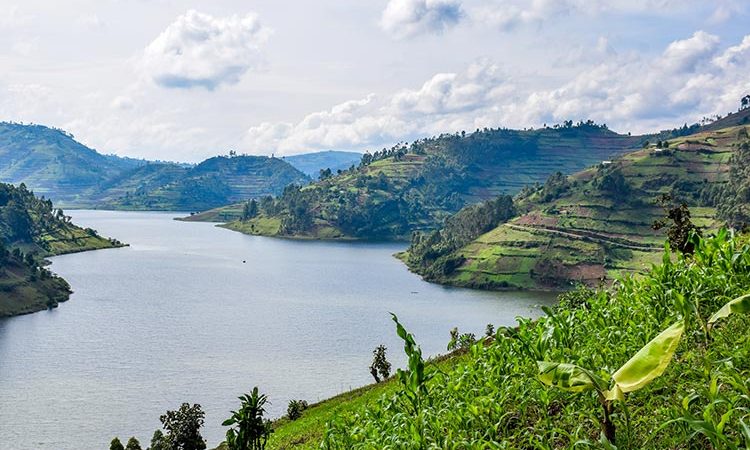
Is Lake Bunyonyi Safe for Swimming?
Nestled in the misty highlands of southwestern Uganda, Lake Bunyonyi stands as one of the country’s most tranquil and beautiful destinations. With its glassy waters reflecting terraced green hills and dotted with 29 scenic islands, it’s easy to see why travelers often call it one of the most peaceful places in East Africa. The lake’s name, meaning “place of many little birds,” captures its serene charm and the gentle music of birdcalls that fill its valleys every morning.
For travelers seeking calm after gorilla trekking in Bwindi Impenetrable National Park or those simply wanting to experience Uganda’s natural beauty, Lake Bunyonyi offers the perfect retreat. But many first-time visitors ask the same question: Is Lake Bunyonyi safe for swimming?
The short answer is yes — Lake Bunyonyi is one of the safest and cleanest lakes in Africa for swimming. It is free from dangerous wildlife and parasites that are common in other African lakes. However, as with any natural water body, there are still important safety guidelines to follow.
Why Lake Bunyonyi Is Considered Safe for Swimming
Lake Bunyonyi is unique among African lakes. While many others are home to hippos, crocodiles, or parasites such as bilharzia, Lake Bunyonyi’s altitude and ecosystem make it remarkably safe.
It’s Bilharzia-Free
Bilharzia, also known as schistosomiasis, is a parasitic disease transmitted through snails found in many tropical lakes and rivers. Luckily, Lake Bunyonyi has no bilharzia. Its cool temperatures and high altitude prevent the snails that carry the disease from surviving here. This makes it one of the few lakes in Uganda where you can swim without fear of infection.
No Hippos or Crocodiles
In contrast to larger lakes like Victoria or Edward, Lake Bunyonyi has no crocodiles or hippos. The lake’s steep, cold, and deep waters make it an unsuitable habitat for these dangerous animals. As a result, visitors can relax and swim freely without worrying about lurking predators.
Clean, Clear, and Calm Waters
The lake’s location in the highlands ensures its water remains clean, clear, and refreshing. There is little industrial activity nearby, and the local communities take great pride in preserving their environment. The water’s calm surface is ideal for gentle swimming or floating peacefully while admiring the breathtaking scenery.
A Community That Respects the Lake
The people of the Kigezi region have lived alongside Lake Bunyonyi for generations. To them, the lake is not just a water source but a sacred part of their cultural identity. Local guides, boatmen, and lodge owners all share a common goal — to keep the lake safe and pristine for both residents and visitors.
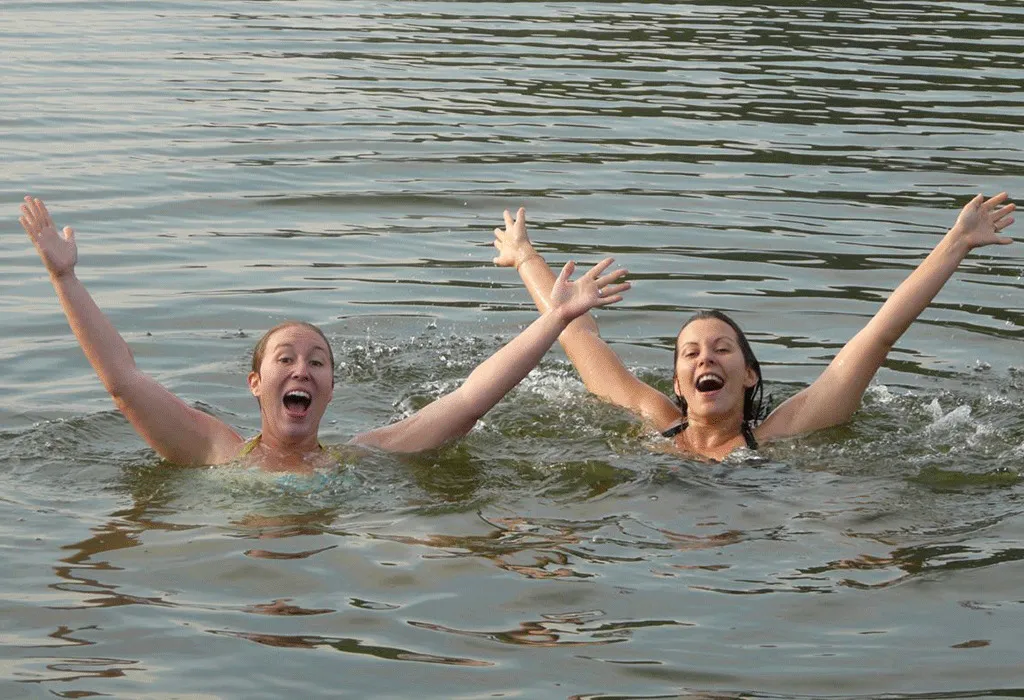
Safety Considerations Before You Swim
Though Lake Bunyonyi is safe, its natural depth and cool temperatures call for caution and mindfulness.
The Lake Is Very Deep
Lake Bunyonyi is the second-deepest lake in Africa, believed to reach up to 900 meters in some areas. Its steep sides mean that the lakebed drops quickly close to shore. For non-swimmers or beginners, it’s important to stay close to the shoreline or use life jackets provided by most lodges.
Always Swim in Designated Areas
Most resorts and guesthouses around the lake, such as BirdNest Resort, Lake Bunyonyi Eco Resort, and Bunyonyi Overland Resort, have designated swimming spots where the water is calm and safe. These areas are regularly used by guests and supervised by guides familiar with the conditions.
Wear a Life Jacket or Use a Float
Even if you’re a confident swimmer, it’s wise to wear a life jacket or use a floating device — especially if you’re venturing away from the shore or combining swimming with canoeing. The lake’s great depth and cold water can make it easy to tire out faster than expected.
Avoid Swimming at Night or Alone
Daytime swimming is the safest. The lake can get very dark at night, and temperatures drop significantly. Always swim during daylight hours when visibility is good and lodge staff or guides are around.
Respect Local Culture
While swimming is perfectly acceptable at Lake Bunyonyi, it’s important to be respectful when near local communities. Modest swimwear is appreciated, and it’s best to swim near your lodge or designated tourist areas rather than community water access points.
The Best Spots to Swim in Lake Bunyonyi
Although the entire lake is generally safe, certain areas are especially popular for swimming because of their accessibility and calm water.
Near Lakefront Lodges
Most lakefront lodges have private swimming docks or platforms for guests. These are convenient, well-maintained, and often equipped with ladders or pontoons. The views from these spots are spectacular — you can swim while watching the reflection of the surrounding hills ripple across the lake’s surface.
Around Bushara and Kyahugye Islands
These islands are among the safest and most beautiful places to swim. The waters here are calm, and the scenery is stunning. Bushara Island also offers eco-friendly accommodations, while Kyahugye Island has a small wildlife sanctuary with zebras and impalas nearby.
Punishment Island (Akampene)
While its past is haunting, the waters around Punishment Island are calm and serene today. You can take a canoe ride to this small island and enjoy a peaceful swim nearby. Local guides often share the island’s story, adding depth and culture to the experience.
Floating Platforms and Canoe Rides
Many lodges have floating platforms where visitors can dive, sunbathe, or simply enjoy the view. You can also combine swimming with a canoe trip, paddling between islands and stopping for a refreshing dip in the quieter bays.
What It’s Like to Swim in Lake Bunyonyi
Swimming in Lake Bunyonyi feels rejuvenating. The water is clear and cool — typically around 20°C (68°F) — making it refreshing on warm afternoons. There’s no mud underfoot or murky water; instead, the lake feels clean and natural. The sensation of floating in the still water, surrounded by forested hills and bird calls, is unlike any other experience in Uganda.
You’ll often see local children swimming or paddling dugout canoes along the shoreline. Their presence adds to the charm of the place — a reminder that Lake Bunyonyi is both a playground and a lifeline for the communities around it.
Beyond Swimming: Other Activities to Enjoy at Lake Bunyonyi
If you’re not content just to swim, Lake Bunyonyi offers a range of outdoor and cultural experiences that make it one of Uganda’s top relaxation spots.
Canoeing: Paddle across the lake in a traditional dugout canoe to explore its 29 islands. It’s peaceful, scenic, and perfect for photography.
Hiking: Walk the surrounding hills and terraces for panoramic views of the lake and villages below.
Birdwatching: More than 200 bird species live here, including kingfishers, cranes, and weavers. Bring binoculars for early morning sightings.
Cultural Tours: Visit nearby villages to learn about the Bakiga and Batwa communities, their music, crafts, and history.
Sunset Views: End your day watching the sunset paint golden reflections across the lake — one of the most magical sights in Uganda.
When to Visit for Swimming
Lake Bunyonyi can be visited year-round, but the best time for swimming is during Uganda’s dry seasons — from December to February and June to September. During these months, the skies are clear, temperatures are pleasant, and the lake’s water level is stable.
In the rainy seasons (March–May and October–November), the region turns lush and green, though occasional showers can make swimming a bit chilly. However, the misty mornings and peaceful atmosphere are absolutely worth experiencing.
Where to Stay
Lake Bunyonyi has accommodation options for every traveler — from backpacker hostels to luxury resorts. Some of the best places include BirdNest Resort, Lake Bunyonyi Eco Resort, Bunyonyi Overland Resort, and Crater Bay Cottages. These lodges offer great food, cozy rooms, lake views, and easy access to swimming and canoeing spots.
Visit Lake Bunyonyi with Experiya Tour Company
Lake Bunyonyi is not just a lake — it’s a sanctuary of peace, beauty, and adventure. Swimming here is not only safe but deeply relaxing, surrounded by some of the most stunning scenery in Uganda. Whether you’re paddling between islands, hiking the hills, or simply floating on the cool, clear water, Lake Bunyonyi offers an experience unlike anywhere else in Africa.
To make your visit seamless and unforgettable, travel with Experiya Tour Company. As one of Uganda’s leading adventure travel specialists, Experiya offers tailor-made trips to Lake Bunyonyi that include transportation, accommodation, guided activities, and cultural experiences. Their professional guides ensure safety, comfort, and authentic encounters with Uganda’s natural beauty.
With Experiya, you don’t just visit Lake Bunyonyi — you live it. From swimming in its serene waters to exploring its islands and communities, every moment becomes a story worth remembering.

